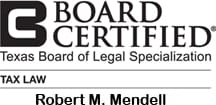For Whom Can I Claim A Dependency Exemption?
A taxpayer is entitled to claim one exemption for each dependent. If the taxpayer can be claimed as a dependent by another taxpayer, however, he or she cannot claim an exemption. A dependent is a person who meets the citizenship test, the joint return test and is either a qualifying child or qualifying relative. To satisfy the citizenship test, the individual must be a US citizen, national or resident; a resident of Mexico or Canada; or a legally adopted child of a US citizen or national with the same principle place of abode of the taxpayer and a member of the taxpayer’s household. There is no dependency exemption for an individual who files a joint return with a spouse for the taxable year beginning in the calendar year in which the taxpayer’s taxable year begins.
The most obvious dependent that a taxpayer can claim an exemption for is his or her child. Under section 151 of the Internal Revenue Code (IRC), a taxpayer is entitled to one dependency exemption for each qualifying child. To be considered a qualifying child, four tests must be met: the relationship test; the residency test; the age or disability test and the support test. Under section 152, a qualifying child is the taxpayer’s son, daughter, step-child, eligible foster child, sibling, step-sibling or any descendant of one of these. To satisfy the residency test, a qualifying child must have the same principle place of abode as the taxpayer for more than one-half of the tax year. To satisfy the age or disability test the qualifying child must be one of the following: (1) under the age of 19 at the end of the tax year; (2) under the age of 24 at the end of the tax year and a full-time student; or (3) any age if totally and permanently disabled at any time during the tax year. To satisfy the support test, a child must not have provided more than one-half of his or her own support during the tax year.
Only one taxpayer can claim a dependency exemption for a child, even if the child meets the relationship, residency, age or disability and support tests for more than one taxpayer. Some taxpayers may agree which one will treat the child as a qualifying child. If the taxpayers cannot agree, and they both claim the dependency exemption for the child, the Internal Revenue Service uses a tie breaker test to determine which taxpayer can claim the child. If one taxpayer is the child’s parent and one is not, the child is treated as the qualifying child of the parent. If both are the parents, the child is treated as the qualifying child of the parent with whom the child lived for the longer period of time during the taxable year. If the child lives with both parents for an equal period of time, the child is the qualifying child of the parent with the highest adjusted gross income. If neither of the taxpayers is the child’s parent, the child is treated as the qualifying child of the person with the highest adjusted gross income.
A taxpayer may also claim one dependency exemption for each qualifying relative. If a taxpayer cares for an elderly parent, he or she may be able to claim an exemption for that parent. To be a qualifying relative, an individual must satisfy the following tests: (1) the individual must have a certain relationship with the taxpayer; (2) the individual’s gross income must be less than the exemption amount; (3) more than one-half of the individual’s support must come from the taxpayer; and (4) the individual cannot be a qualifying child of any other taxpayer. To satisfy the relationship test, the relative must either live with the taxpayer the entire year as a member of the household or be related to the taxpayer as a child or a descendant of a child; a brother, sister stepbrother or stepsister; the father or mother, or an ancestor of either; a stepfather or stepmother; a son or daughter of a brother or sister of the taxpayer; a brother or sister of the father or mother of the taxpayer; or a son-in-law, daughter-in-law, father-in-law, mother-in-law, brother-in-law or sister-in-law. 26 U.S.C. §152(d)(2)(A)-(G). The taxpayer’s spouse cannot be a qualifying relative. For the support test, the term support generally includes food, shelter, clothing, education, transportation, medical and dental care and similar expenses.
Copyright © 2008 FindLaw, a Thomson Reuters business
DISCLAIMER: This site and any information contained herein are intended for informational purposes only and should not be construed as legal advice. Seek competent counsel for advice on any legal matter.



